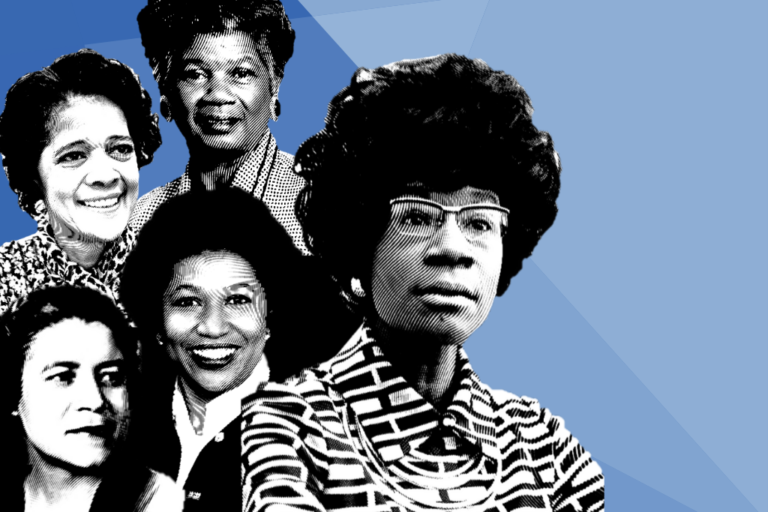Black women are woefully underrepresented across all levels of government - check out the…
Breaking Barriers Often Comes with Increased Scrutiny

When Kamala Harris was sworn in as Vice President in January 2021, people all over the world—including us— celebrated the historic moment. Although as Vice President Harris has shattered stereotypes and changed the face of politics, we also knew from our decades of research that she would be held to a different and higher standard as a woman of color.
For us, it is no surprise to see that she has faced gendered language and criticism. Our research has found that voters have an easier time supporting women to be part of a deliberative body, like a legislature. If a woman is going to effectively be CEO of her country, state, or city (or in this case a heartbeat away from the President), they need more evidence that she is qualified. Because we have found that while voters assume men are qualified, they do not do the same for women. And that is where much of the criticism against Vice President Harris is rooted.
Her first foreign trip as Vice President, to Guatemala and Mexico, earlier this month, garnered a high level of scrutiny. She was described as “flippant,” “defensive,” “clumsy” throughout the trip, and reported to have “snapped” at NBC News Anchor Lester Holt during an interview. The gendered connotations that she is an amateur, despite being a highly accomplished and successful politician, were clear. This implication is damaging, because we know from our research that voters punish women for perceived on-the-job learning. This erodes the sense that they are qualified.
Characterizing her responses as rude also undermines her likeability, which our research has consistently found is a non-negotiable for women in politics. The Vice President’s answer to the question of whether she was visiting the border was dissected and used as evidence to imply that she isn’t prepared for the job, or even that she is willfully ignoring aides who prep her. Contrast that with a much more neutral report that President Biden “chafed at press questions last week.” He was described as “eager to project optimism” and his tone was characterized as “boosterism.”
Last week, in an article supported largely by background quotes, POLITICO reported that the staff supporting Vice President Harris was “rife with dissent,” and used words like “chaos” and “dysfunction” to describe the environment. While no team is perfect, and working in politics at the highest level is likely to come with pressure, criticism of a woman’s management style is often influenced by gender. When women seek executive office, they must satisfy both gender stereotypes. They need to show they are strong enough to lead their city or state (or country) but maintain a level of femininity so they aren’t seen as too tough and therefore not likable. Needless to say, appearing “strong enough” but not “too tough” is often an impossible challenge. This is the same predicament of women bosses.
Navigating criticism and double binds is nothing new for Vice President Harris. Throughout her career, she has been a trailblazer. Despite having one of the most challenging Vice Presidential portfolios in recent memory, she has demonstrated her ability to tune out the noise and focus on the task at hand. Someday, another woman Vice President will follow in her footsteps—we hope it will be without the sexist criticism and gendered standards.







